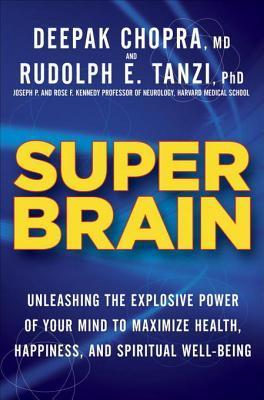
About the Author
Questions & Answers
The human brain evolves and adapts throughout life through a process called neuroplasticity, which allows it to form new neural connections and pathways. This ability is influenced by our experiences, thoughts, and actions. Key aspects include:
-
Learning and Skill Development: The brain can acquire new skills and knowledge, as seen in the example of the Norwegian chess prodigy Magnus Carlsen, who demonstrated exceptional memory and chess skills.
-
Adaptability: The brain can adapt to changes and challenges, as exemplified by Albert Einstein's adaptability in physics and personal life.
-
Integration: Like a newborn baby, the brain integrates various inputs to form a coherent world, as seen in the example of a baby's constant learning and integration of new experiences.
-
Self-Healing: The brain has the capacity to heal itself, as demonstrated by neuroplasticity in stroke victims and the potential for reversing cognitive decline in Alzheimer's disease.
-
Cognitive Abilities: The brain can enhance cognitive abilities, such as memory, through training and practice.
The implications for personal growth and cognitive abilities are significant:
-
Personal Growth: By understanding and harnessing neuroplasticity, individuals can improve their cognitive abilities, adapt to challenges, and achieve personal goals.
-
Enhanced Well-being: A healthy brain contributes to overall well-being, happiness, and a sense of fulfillment.
-
Potential for Innovation: The brain's adaptability allows for the development of new ideas and innovations, contributing to societal progress.
Consciousness plays a crucial role in shaping our reality by influencing our perceptions, emotions, and actions. It allows us to create and interpret our experiences, thereby shaping our personal reality. To harness its power for personal transformation and well-being, we can:
- Increase self-awareness: By being mindful and reflecting on our thoughts and feelings, we can better understand our reactions and choices, leading to more conscious decision-making.
- Transform perceptions: By questioning and challenging our fixed beliefs and assumptions, we can alter our perceptions and create a more positive reality.
- Embrace higher consciousness: Engaging in practices like meditation, mindfulness, and spiritual exploration can expand our awareness and connect us to a higher purpose, fostering well-being.
- Practice empathy: Understanding and sharing the feelings of others can deepen our connections and contribute to a more harmonious reality.
- Focus on well-being: By cultivating positive experiences and emotions, we can enhance our overall well-being and create a more fulfilling life.
To overcome misconceptions about the brain, we must shift our perspective. First, recognize that the brain is highly adaptable and capable of change throughout life, not fixed by genetics or past experiences. Embrace the concept of neuroplasticity, which shows that our thoughts and actions can alter brain structure and function. Challenge the myth that we only use a fraction of our brain; instead, aim to use it more effectively by setting higher expectations and engaging in activities that stimulate cognitive growth. Cultivate mindfulness to become aware of our thoughts and emotions, and harness the power of the higher brain for better decision-making and problem-solving. Lastly, understand that while genetics play a role, they are not deterministic. By actively shaping our thoughts and behaviors, we can unlock the full potential of our brains.
To foster a "super brain," we can employ strategies that stimulate neuroplasticity and cognitive function. Regular exercise enhances blood flow to the brain, promoting the growth of new neurons and synapses. Mental stimulation, such as reading, puzzles, and learning new skills, strengthens neural connections and improves cognitive abilities. Social connections are crucial as they provide emotional support and opportunities for intellectual engagement, both of which contribute to brain health. Additionally, maintaining a balanced diet, getting adequate sleep, and managing stress are essential for a super brain. These factors collectively support brain function, enabling us to reach our full potential.
To integrate mind and body for optimal health and well-being, focus on mindfulness, meditation, and a balanced lifestyle. Mindfulness helps you stay present and aware, while meditation calms the mind and promotes mental clarity. A balanced lifestyle includes physical activity, a healthy diet, and social connections. This integration reveals that consciousness is the source of reality, not just a byproduct of the brain. It implies that our thoughts and actions shape our reality, and that we have the power to create a life of well-being and fulfillment. This understanding challenges traditional views of determinism and encourages personal responsibility for our health and happiness.
